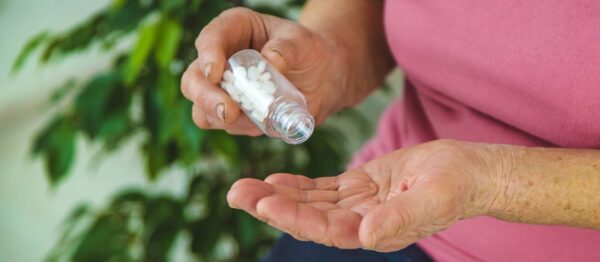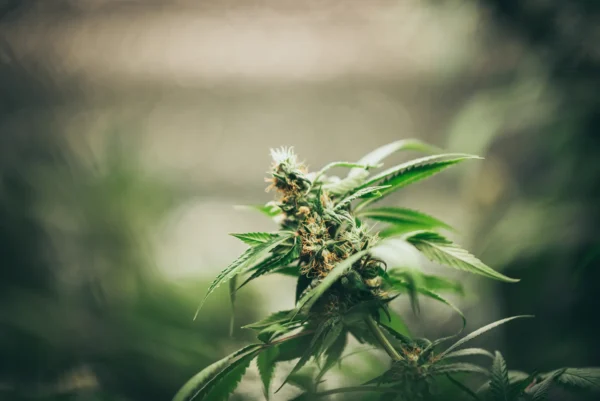In recent years, xylazine, a non-opioid sedative widely used as an animal tranquiliser in veterinary care, has been increasingly reported as an adulterant in illicit drug mixtures in the United States. According to an intelligence report by the Drug Enforcement Administration (DEA), the substance has been found in cocaine, heroin, and a number of other drugs, including fentanyl-laced fake prescription pills. The US recorded a 20-fold increase in fatal fentanyl-xylazine overdoses between 2015 and 2020, leading to the combination being designated an ‘emerging threat’ in April 2023.
More recently, the drug has been increasingly detected in illicit drugs in the UK, including illegal vapes marketed as ‘THC’ or ‘cannabis’, as well as fake codeine and diazepam (Valium) pills. The death of an individual in the UK in May 2022 – believed to be the first xylazine-related death outside of North America – raised concerns about the presence of the sedative in the UK’s illicit drug supply.
What is Xylazine?
Xylazine is a non-opioid sedative that inhibits neurotransmitter release in the central nervous system. While it is licensed as a veterinary medicine in the UK, it is not for use in humans. In veterinary care, it can be used to put large animals, such as horses and cows, to sleep. However, when used chronically in humans, it can cause the development of skin ulcers which, if they become infected, can lead to the need for limb amputation.
Standard drug trials have not been conducted to determine the effects of the drug; however, reports from users indicate that xylazine use may also be associated with hypertension, hyperglycemia, respiratory depression, and hypothermia, among other effects. Its combination with other drugs, particularly opioids such as heroin and fentanyl, increases the risk of mortality due to airway compromise and dangerously lower heart rate.
Xylazine on the Rise in the UK
It is essential to understand the risk of xylazine and other dangerous drugs, including where they are found and the populations at highest risk from their use, in order to support people who use drugs and reduce the risks and harms of illicit drug use. A recent study, published in April 2024 in Addiction, aimed to monitor data from UK sources to understand the spread of xylazine throughout the UK illicit drug supply.
Methods of the Study
The researchers collated cases where xylazine detections were made by the end of August 2023 from toxicology laboratories in the UK, the Welsh Emerging Drugs and Identification of Novel Substances (WEDINOS) postal drug-testing service, and drug seizures made by UK law enforcement.
All NHS and commercial post-mortem toxicology laboratories operating in the UK (n = 16) were contacted regarding cases where xylazine had been detected. The requests included details of the dates and locations of the cases, whether the cases were fatal or non-fatal, and any co-detected drugs. In fatal cases where inquests were ongoing at time of writing, permission was sought from the corresponding coroner to publish details of the deaths.
WEDINOS is the only drug-testing service accessible to the public currently in operation in the UK. The researchers searched their website using the keyword ‘xylazine’ on 31 August 2023. Submissions with mention of xylazine were noted, including the date of submission, location of submitter, purchase intent, formulation, and co-detected drugs.
The UK Government Office for Health Improvements and Disparities (OHID) were able to provide the date and location of drug seizures made by law enforcement where xylazine was detected up to the end of the study period.
Results of the Study
By the end of August 2023, xylazine was detected in 35 cases across toxicology, drug-testing, and drug seizure reports covering the whole of England, Scotland and Wales. No cases were reported from Northern Ireland. NHS and commercial post-mortem toxicology laboratories provided evidence of xylazine detections, in combination with other drugs, in biological samples from 16 people, 11 of which recorded in the summer of 2023 alone. Eleven of the cases were fatal with xylazine implicated as a cause of death in combination with other drugs in three cases.
In most cases, xylazine was detected alongside heroin and/or a strong opioid; however, this was not true in two of the cases, indicating a wider circulation of xylazine. Data provided by WEDINOS support this theory: 14 samples submitted from across the UK contained xylazine, but none of the cases listed heroin as a purchase intent.
Furthermore, in none of the 14 cases was xylazine the purchase intent itself, but rather counterfeit licensed medication tablets (n = 11), tetrahydrocannabinol (THC) vapes (n = 2) or white powder (n = 1).
Implications of these Findings
The results of this study confirm that xylazine has penetrated the UK illicit drug market. While most cases assessed in this study detected xylazine in combination with opioids, including heroin, it is clear that the presence of xylazine is not limited to heroin supplies. It is likely that xylazine is mixed with other drugs as an adulterant, as has been observed in the US.
However, WEDINOS evidence suggests that the sedative may have been co-administered as a counterfeit tablet. The authors theorise that such administration may be linked to a recent drive to reduce the prescribing of certain medications in the UK, particularly of benzodiazepines in people receiving opioid agonist therapy, leading some to resort to counterfeit medications to self-medicate.
Notably, until recently, the list of compounds tested for in standard toxicology screens did not include xylazine. The fact that many toxicology laboratories are now able to test for this drug may account, at least in part, for the increase in case numbers during summer 2023. Therefore, the authors note, it is likely that illicit xylazine is probably more widespread than these findings indicate.
Conclusions
Based on the findings of this study, the authors recommend that expanding access to xylazine testing in the UK could help to more effectively address its health harms and prevent a public health crisis similar in scale to the US. Resources should also be directed to the development of a xylazine reversal agent to prevent drug overdose.
Moreover, it is important to raise awareness of this issue among the UK public. An analysis conducted by Curaleaf Clinic researchers suggests that 1.8 million adults in the UK self-medicate with illicitly sourced cannabis. The presence of xylazine on samples intended to be purchased as THC vapes suggests that these individuals, and many more may be at risk. These individuals should be strongly encouraged to explore whether they are eligible for legally prescribed medical cannabis to prevent exposure to potentially harmful compounds.
Finally, the authors note that increasing prohibitive drug policy is unlikely to be a deterrent, as there is little evidence that individuals are actively seeking to use the drug.





